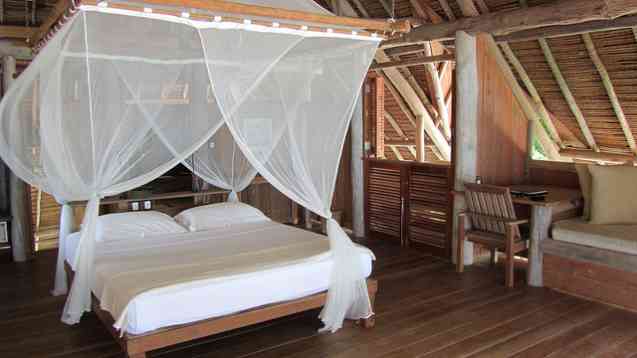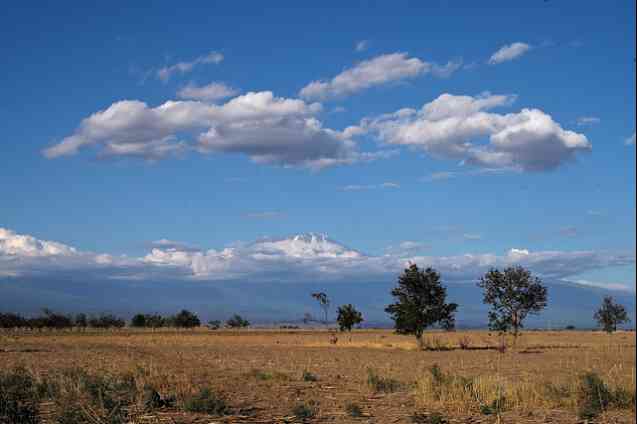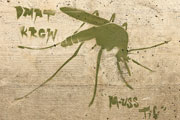Malaria Made Simple: How to Stay Safe on African Safaris
Some of the most regularly asked questions we get from clients are about the malaria risks on African safaris. In this guide to malaria, we set out all the facts about this potentially deadly disease. From transmission to prevention, to everything in between, we’ll make it plain and simple to understand malaria.
Without wanting to scare you, we want to be sure you know how serious malaria is, and why protecting yourself against it is vital. Know the facts. This will help you to be prepared and stay safe on African safaris.
 Mosquito at Sunset by XNAHandcor
Mosquito at Sunset by XNAHandcor
Malaria: Quick Facts
- Malaria is a serious and potentially fatal tropical disease, spread by mosquitoes in malaria-endemic areas
- Not all areas in all countries are malaria areas. A number of factors are involved including season, altitude and vector control (mosquito elimination programs)
- Malaria is not contagious (spread from human to human)
- Risk of contracting malaria can be significantly reduced using prophylaxis (anti-malaria medicine) and non-drug measures (avoiding being bitten)
- Choice of prophylaxis needs to be made on a person-by-person basis, in consultation with a medical practitioner, taking into account a number of factors including their medical history and other medication
- Pregnant women are more susceptible to malaria and both the disease and its treatment may affect the unborn baby. We advise that pregnant women and those wanting to fall pregnant avoid malaria areas. Ask one of our consultants for great safari options that avoid malaria areas
- While the most common (and most serious) version of malaria ( P. falciparum) presents within 7 to 10 days, other variants (P. Ovale or P. Vivax) may only present in months to years, or cause relapses
- Malaria usually presents with fever and flu-like symptoms. If you experience any symptoms during or after a visit to a malaria area, seek medical help immediately
Malaria Lifecycle - what is it?
Malaria is transmitted by the female Anopheles mosquito. The mosquito bites the human and injects the malaria parasite into the blood, from where it travels into the liver and multiplies and changes. The parasites then infect the red blood cells. It is at this point that the person will become symptomatic.
The parasite at this stage can be picked up again by a mosquito that bites the human. It undergoes another lifecycle in the mosquito’s stomach. From there the parasite travels to the mosquito’s salivary glands, and the whole process starts again.
__medium.jpg) Mosquito by John Tann
Mosquito by John Tann
Transmission of Malaria - how do you get it?
As described above in the lifecycle section, malaria is transmitted by being bitten by the female Anopheles mosquito.
Malaria is not contagious, i.e. it can’t spread from person to person like a cold. It is also not sexually transmitted.
The only other (highly unusual) routes of transmission are from blood transfusions, organ transplants or needle-sharing with an infected person. It can also be passed from mother to child during pregnancy or delivery.
Symptoms of Malaria
 Thermometer by Toshiyuki IMAI
Thermometer by Toshiyuki IMAI
The symptoms of malaria usually mimic those of flu (tiredness, sweats and chills, headache, painful muscles etc.), and generally include a fever. Nausea, vomiting and diarrhea may also occur. Symptoms usually begin 10 days to a month after infection but, depending on the strain, can present earlier, or as much as a year later.
If left untreated, symptoms can rapidly progress to mental confusion, seizure, kidney failure, coma and death.
Should you feel ill in any way during your stay in a malaria area, or after leaving the area, consult your medical practitioner immediately and be sure to tell them that you’ve been to a malaria-endemic area.
Diagnosing Malaria
 Microscope by Military Health
Microscope by Military Health
Malaria can only be reliably diagnosed – and which strain it is – on examination of a blood sample under a microscope. The test must be performed without delay. If, however, you are in the middle of nowhere, with no access to a lab, and you present with malaria symptoms, backup treatment should be started while you get to the closest medical facility. Do not delay.
Treatment for Malaria
 Hospital c. 1950 by Lynette
Hospital c. 1950 by Lynette
Malaria is treatable, and it is vital to treat it immediately.
While it is possible (and wise) to take standby treatment, such as Coartem®, as part of your medical kit this should not, under any circumstances, be considered as an alternative to seeking medical care. It is indicated for the treatment of uncomplicated malaria and may well treat you, BUT if you have severe malaria it may progress very quickly and require other medicines, such as quinine.
We can’t state it too many times: untreated or improperly treated malaria can be fatal, and it can get severe, quickly.
If you suspect you have malaria, seek medical help immediately.
Preventing Malaria - staying safe on African safaris
A number of steps can be taken to keep yourself safe from malaria while on safari in Africa. While none are 100% effective at preventing malaria, combining them all will significantly reduce your risk.
Non-Drug Measures
 Fireside by Peter Pawlowski
Fireside by Peter Pawlowski
The most effective way of avoiding malaria is to avoid being bitten by mosquitoes. While this sounds impossible when you’re coming to Africa to spend your time outdoors, there are a large number of things you can do to keep the little critters at bay:
- Cover up between dusk and dawn when the mozzies bite. Be sure to pack long sleeves and long pants (preferably light-coloured)
- Always sleep under a mosquito net
- Use insect repellants, both on yourself and in your accommodation
 Mosquito nets by David Jones
Mosquito nets by David Jones
Prophylaxis
There are three main options when it comes to anti-malarial medicines. Prophylaxis should be used in conjunction with the non-drug measures mentioned above. The choice of which medicine should be used must be decided on a person-by-person basis in consultation with your medical practitioner.
A number of factors will influence the choice of medicine. These include underlying medical conditions, other medication being taken and tolerance of the chosen prophylactic medicine.
Should you be travelling with children, be pregnant (or wanting to fall pregnant), breastfeeding or have any underlying medical conditions or concomitant medications, it is even more vital to discuss prophylactic options with your doctor or a travel clinic well in advance of your safari.
We advise starting your malaria prophylaxis well in advance, to ensure that you tolerate it. Should you experience side effects, consult your medical practitioner.
 Apothecary by Casey Fleser
Apothecary by Casey Fleser
The three medicines from which to choose are:
Doxycycline
Some tradenames: Efracea®; Periostat®; Vibramycin-D®; Vibrox®; Doryx®; Oracea®; Doxymal®
Taken daily (100 mg), starting at least 48 hours before entering the malaria area, daily while in the area, and daily for four weeks after leaving the area.
The most commonly experienced side effects are gastrointestinal (nausea, vomiting, diarrhea). Taking the medication with the biggest meal of the day helps to minimize this. Doxycycline may also cause oesophagitis (burning throat), but swallowing the pill with a large glass of water and staying upright for a while after taking will prevent it.
Doxycycline may interfere with the efficacy of the oral contraceptive pill. Avoid milk/dairy products for a couple of hours as it may affect absorption.
Mefloquine
Some tradenames: Lariam®; Mefliam®
Taken weekly (250 mg), starting at least 10 days before entering the malaria area, weekly (on the same day of the week) while in the area, and weekly for four weeks after leaving the area.
Mefloquine is contraindicated in people with a history of epilepsy, cardiac problems or psychiatric problems. The drug may cause psychiatric side effects ranging from mild anxiety and nightmares to, in the most severe cases, psychosis. Report any such side effects to your doctor, as you may need to change to an alternative malaria prophylaxis medication.
Atovaquone/Proguanil
Some tradenames: Malarone®; Malanil®; Numal®
Taken daily (250 mg/100 mg), starting 48 hours before entering the malaria area, daily while in the area, and daily for one week after leaving the area.
The most common side effects are headache and nausea, vomiting and/or diarrhea. Again, taking the medicine with a big meal can minimize this.
Where is Malaria a risk? Malaria by Area in Africa
The highest transmission of malaria occurs in Sub-Saharan Africa – the countries with warm, wet climates.
 Kilimanjaro by Roamd Boed
Kilimanjaro by Roamd Boed
All of the countries visited on safaris offered by ABS are malaria endemic (see below for WHO country-by-country classification). It is important, however, to note that in many of the countries (especially South Africa, Namibia and Botswana), only certain parts of the country are malarial, while other parts are completely malaria-free.
Transmission of malaria doesn’t occur in some areas:
- In the cold season
- In extremely dry, desert areas
- At high altitude
- In areas with good mosquito elimination programs
 Africa by maps.bpl.org
Africa by maps.bpl.org
Below we include the malaria areas by country, as described by the World Health Organisation's (WHO) International Travel and Health. Please note that in some countries only certain parts are malarial. If you are unsure about where your safari goes or if it includes visits to malaria areas, contact our African Budget Safari consultant and we will happily help you.
South Africa
Malaria risk due predominantly to P. falciparum exists throughout the year in the low‐altitude areas of Mpumalanga Province (including the Kruger National Park), Limpopo Province and north‐eastern KwaZulu‐Natal as far south as the Tugela River. Risk is highest from October to May inclusive.
Namibia
Malaria risk due predominantly to P. falciparum exists from November to June inclusive in the following regions: Ohangwena, Omaheke, Omusati, Oshana, Oshikoto and Otjozondjupa. Risk exists throughout the year along the Kunene River and in Caprivi and Kavango regions.
Botswana
Malaria risk due predominantly to P. falciparum exists from November to May/June in the northern parts of the country: Bobirwa, Boteti, Chobe, Ngamiland, Okavango, Tutume districts/sub‐districts.
Zimbabwe
Malaria risk due predominantly to P. falciparum exists from November to June inclusive in areas below 1200 m and throughout the year in the Zambezi Valley. In Bulawayo and Harare, the risk is negligible.
Mozambique
Malaria risk due predominantly to P. falciparum exists throughout the year in the whole country.
Malawi
Malaria risk due predominantly to P. falciparum exists throughout the year in the whole country.
Zambia
Malaria risk due predominantly to P. falciparum exists throughout the year in the whole country.
Tanzania
Malaria risk due predominantly to P. falciparum exists throughout the year in the whole country below 1800 m.
Kenya
Malaria risk due predominantly to P. falciparum exists throughout the year in the whole country. Normally, there is little risk in the city of Nairobi and in the highlands (above 2500 m) of Central, Eastern, Nyanza, Rift Valley and Western provinces.
Uganda
Malaria risk due predominantly to P. falciparum exists throughout the year in the whole country.
Take a look at the Complete African Safari Medical Guide for health and safety tips or view the 10 Safest Countries in Africa to Visit.
For more information about preventing malaria and preparing for your African safari trip, ask one of our capable and experienced travel fanatics.
If you liked this post, these trips cover similar ground…
- 5 Day Cape Town, Garden Route & Addo Safari (Backpacking Tour)
- 4 Day Private Garden Route Tour from Cape Town (return)
- 2 Day Big 5 Cape Town Safari to Aquila Game Reserve - Budget Lodge Tour
- 3 Day Cape Town Safari - Big 5 Budget Tour
- 4 Day Cape Town Holiday: Big 5 Safari, Wine & Peninsula Tour


 Briony is a qualified pharmacist, published author and travel blogger living in Cape Town. She writes her own blog about travel, the arts, music and the good things in life, with a focus on accessibility. She likes watching the world go by, and sometimes it makes her nose twitchy, but mostly it provides golden nuggets with which to light up the page.
Briony is a qualified pharmacist, published author and travel blogger living in Cape Town. She writes her own blog about travel, the arts, music and the good things in life, with a focus on accessibility. She likes watching the world go by, and sometimes it makes her nose twitchy, but mostly it provides golden nuggets with which to light up the page.








__small.jpg)

